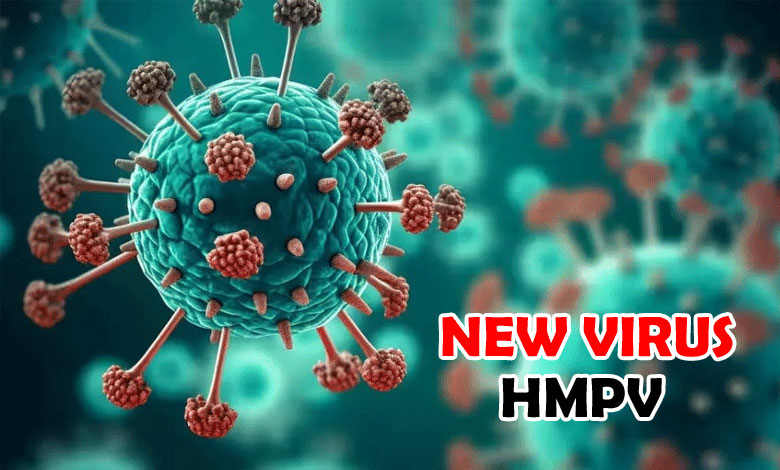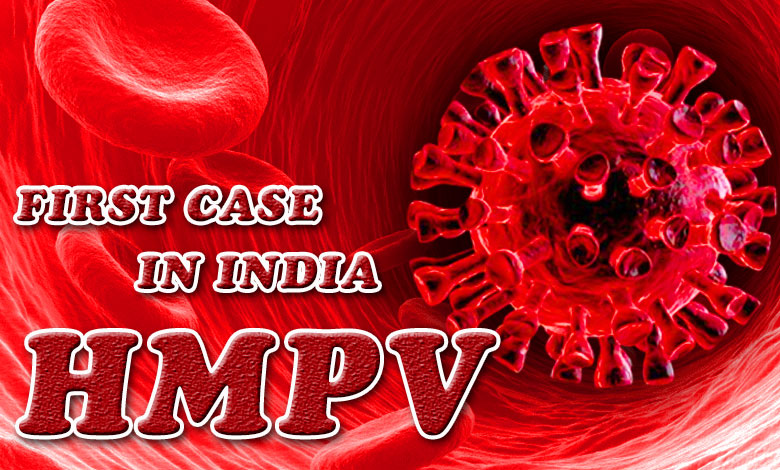
New Delhi: India has confirmed its first two cases of Human Metapneumovirus (HMPV), a respiratory virus that has been causing concern worldwide due to its potential health implications.
The Indian Council of Medical Research (ICMR) confirmed the two cases through its routine surveillance of multiple respiratory viral pathogens.
Table of Contents
Details of the Confirmed Cases
The two confirmed cases were reported in Karnataka, one of India’s southern states. The first case involves a three-month-old female infant who was diagnosed with HMPV after being admitted to Baptist Hospital in Bengaluru. The infant had a history of bronchopneumonia. After receiving treatment, the child was discharged and is reportedly recovering well.
The second case is an eight-month-old male infant, also with a history of bronchopneumonia, who tested positive for HMPV on January 3, 2025. This infant was also admitted to Baptist Hospital, where he is undergoing treatment and is currently recovering.
Also Read | First Case (HMPV) Reported in India: What You Need to Know About This Respiratory Virus
Key Observations
What stands out in both cases is that neither of the patients had a history of international travel, which suggests that HMPV is actively circulating within India. This highlights the growing concern over the spread of the virus and the importance of continued surveillance.
What is Human Metapneumovirus (HMPV)?
Human Metapneumovirus (HMPV) is an airborne respiratory virus that can cause symptoms similar to other viral infections, such as the common cold, fever, cough, and nasal congestion. In most individuals, the illness is mild, but it can lead to more serious complications in infants, the elderly, and those with compromised immune systems.
Global and National Context of HMPV
HMPV has been circulating globally, including in China, where an increase in cases has been reported. As of now, there has been no unusual surge in Influenza-Like Illness (ILI) or Severe Acute Respiratory Illness (SARI) cases in India, as per the data from the ICMR and the Integrated Disease Surveillance Programme (IDSP).
In India, the authorities are continuously monitoring the situation through all available surveillance channels. ICMR will continue to track HMPV trends throughout the year to stay ahead of any potential outbreaks.
Measures Taken by Indian Health Authorities
India’s Union Health Ministry has assured that the country is well-prepared to handle any potential increase in cases. The World Health Organisation (WHO) has been providing updates regarding the situation in China, which is helping to inform India’s public health measures.

To further strengthen preparedness, a recent national preparedness drill demonstrated that India is equipped to manage any surge in respiratory illnesses, including HMPV. Public health interventions and measures can be deployed promptly if necessary.
Preventive Measures and Recommendations
As of now, there is no specific vaccine or antiviral treatment for HMPV, making prevention crucial. Health authorities have stressed the importance of good respiratory hygiene to reduce the spread of the virus. The public is urged to:
- Wash hands frequently.
- Cover their nose and mouth when coughing or sneezing.
- Avoid close contact with infected individuals.
While the cases in Karnataka have raised alarms, the authorities are confident that with effective monitoring and preventive measures, India can manage the situation without significant disruption.
What to Expect Moving Forward
Given the rise in global HMPV cases and the two confirmed cases in Karnataka, it is essential for health authorities to stay vigilant and continue monitoring the spread of the virus. The ICMR, IDSP, and the Health Ministry will keep the public informed with timely updates.
The WHO’s guidance and the preparedness drills conducted across India highlight the nation’s capability to tackle potential health challenges. With early detection, quick interventions, and public awareness, India is prepared to address this emerging respiratory threat.
